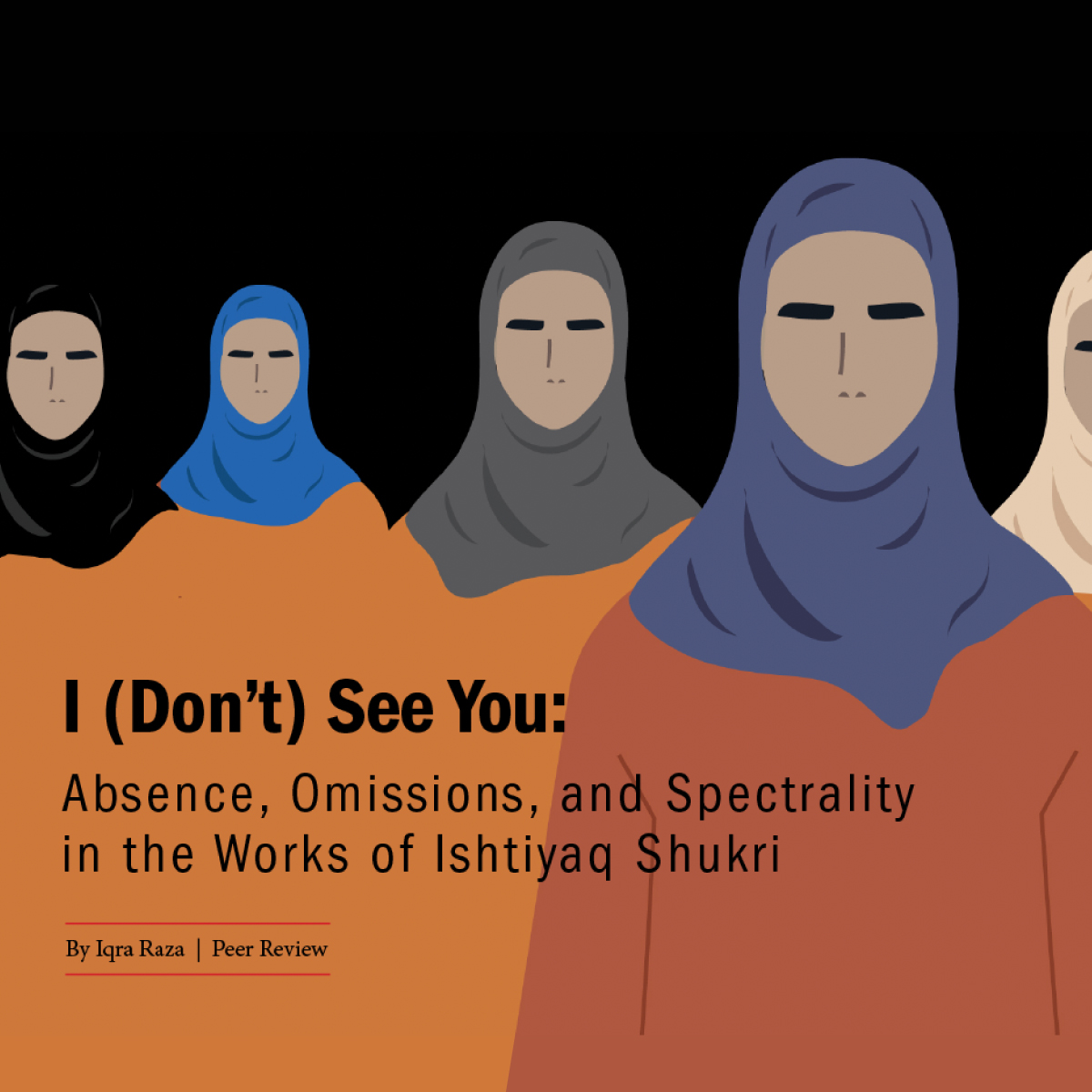I (Don’t) See You: Absence, Omissions, and Spectrality in the Works of Ishtiyaq Shukri
Main Article Content
Abstract
This paper studies the representation of the Muslim body (within the context of the War on Terror) as an instance of disembodied subjectivity that haunts through the remnants of its presence, via a close textual analysis of Ishtiyaq Shukri’s novels The Silent Minaret (2005) and I See You (2014). The paper examines the corporeal absence within the said texts as a template for understanding the modus operandi of the necropolitical regime and the extremities of state violence it implies. It explores the implications of spectrality within texts saturated by instances of taxonomical categorisations of the body and examines spectrality alongside the implications of absences and omissions in order to reveal how the three interact and inform each other. Conceptualising spectrality as the dominant mode of writing for post-9/11 novels, the paper engages with Derrida’s work on deferred mourning in relation to spectres, offering a new paradigm for an understanding of the post-9/11 Muslim experience.
Article Metrics Graph
Article Details

This work is licensed under a Creative Commons Attribution-NonCommercial 4.0 International License.





